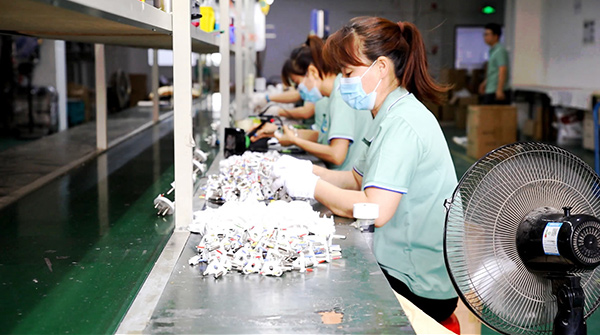Simatop's Firm Dissent and Condemnation
As a reputable manufacturer Simatop specializing in intelligent solutions such as smart plugs and smart lighting, Simatop firmly dissents against and unequivocally condemns the decision to release radioactive water from the Fukushima nuclear plant into the Pacific Ocean. We believe that such an action not only disregards the potential catastrophic consequences for marine ecosystems and the environment but also poses significant risks to global health and safety.
Our company is deeply committed to producing innovative and eco-friendly products that enhance the quality of life for individuals and communities. We recognize the urgency of adopting responsible and sustainable practices that safeguard our planet's well-being and the welfare of future generations.

Understanding Radioactive Water
Radioactive water, as the name suggests, refers to water contaminated with radioactive substances. This can include highly radioactive wastewater generated from nuclear leakage incidents or cooling water that has come into direct contact with nuclear fuel. Experts emphasize that radioactive water is distinct from nuclear waste water, as it contains a more extensive range of 64 nuclear radioactive substances, including plutonium.
Societal Implications
Radioactive water contains various radioactive elements such as uranium, plutonium, cesium, strontium, iodine, cobalt, and more. Some of these elements have long half-lives; for instance, uranium-238 has a half-life of 4.5 billion years, while plutonium-239 has a half-life of 24,000 years. These radioactive elements pose serious threats to both human health and the environment, including carcinogenic effects, genetic mutations, and birth defects. Depending on the source and circumstances, the concentration and proportions of these radioactive elements in nuclear water can differ, but they generally exceed international safety standards and limits.
If not properly treated before being released into the environment, radioactive water could have dire consequences for ecosystems and human health. Radioactive substances can spread through water, soil, air, and the food chain, leading to increased radiation exposure within living organisms and triggering various diseases and genetic mutations. Thus, the handling and disposal of radioactive water must adhere to strict safety standards and protocols to prevent any potential leaks or accidents.
Post time: Aug-24-2023